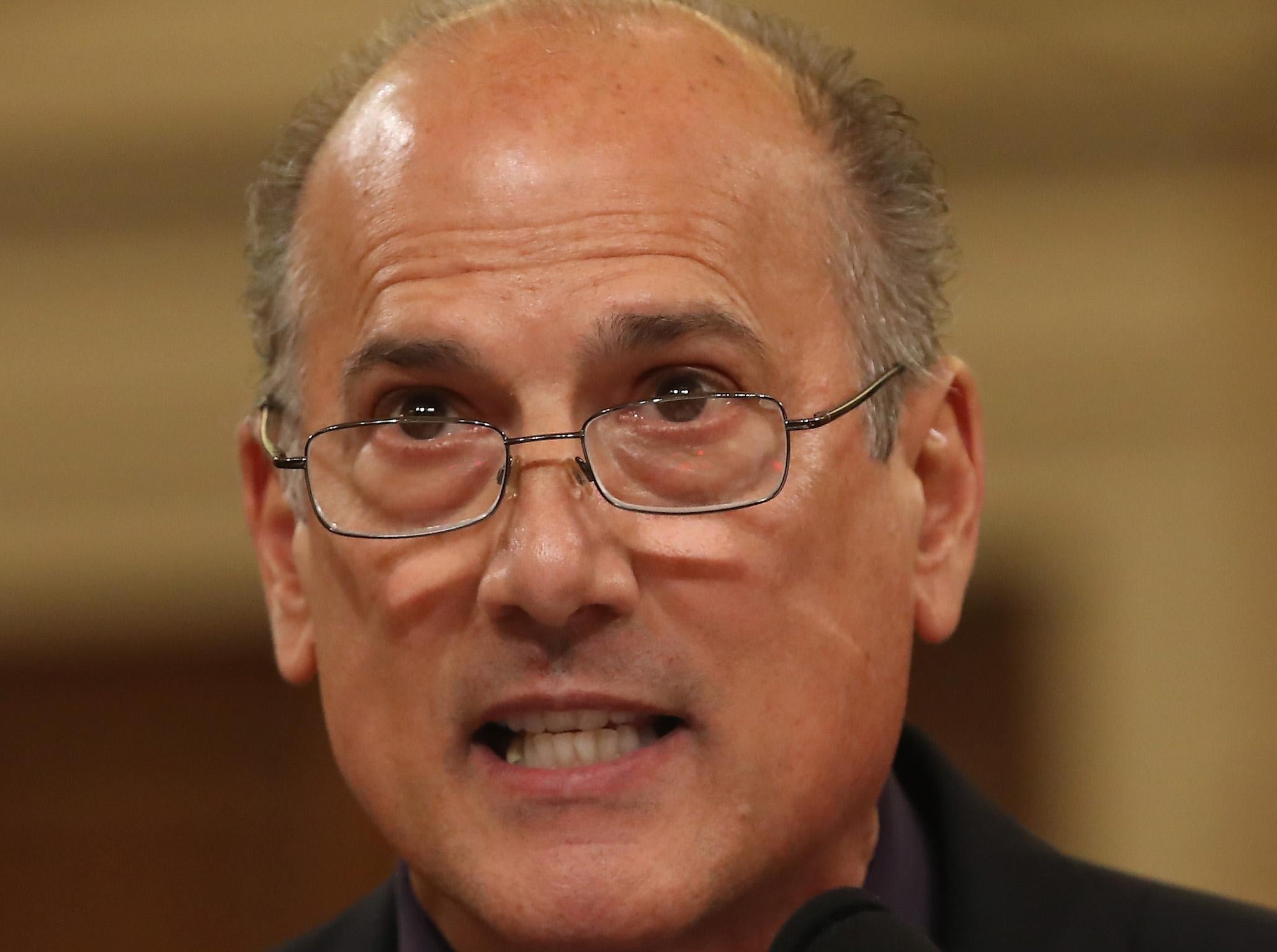Donald Trump's pick for drug czar withdraws amid claims he made opioid epidemic worse
Mr Marino was the leading advocate of a bill that made it tougher to stop the spread of addictive opioids

Donald Trump's pick for drug czar has withdrawn from consideration after reports that he damaged the US's efforts to counter a prescription painkiller epidemic.
“Representative Tom Marino has informed me that he is withdrawing his name from consideration as drug czar,” Mr Trump said in a Tuesday morning tweet. “Tom is a fine man and a great Congressman!”
The Republican congressman from Pennsylvania – Mr Trump's nominee to lead the Office of National Drug Control Policy – had championed a bill that effectively prevented federal agents from stopping the spread of addictive opioid drugs, according to a report by the Washington Post and CBS' 60 Minutes.
“He didn't want to have even the perception of a conflict of interest with drug companies or, frankly, insurance companies,” Mr Trump told Fox News Radio in an interview Tuesday, shortly after breaking the news on Twitter.
On Monday, the President had promised to reverse his nomination of Mr Marino if “it's one percent negative to doing what we want to do.”
“I did see the report. We’re going to look into the report,” the President said during a Rose Garden news conference Monday afternoon.
He continued: “We’re going to take it very seriously because we’re going to have a major announcement probably next week on the drug crisis and on the massive opioid problem, and I want to get that absolutely right… We're going to be looking into Tom.”
According to the Washington Post and 60 Minutes, Mr Marino was the top legislator advocating for the Ensuring Patient Access and Effective Drug Enforcement Act.
The law made it essentially impossible for the Drug Enforcement Administration (DEA) to freeze suspicious narcotics shipments from drug distribution companies to “corrupt doctors and pharmacies” for use on the black market, the news outlets reported.
Republican Representative Marsha Blackburn had co-sponsored the bill with Mr Marino.
In a statement, a spokesperson for Ms Blackburn told The Tennessean newspaper that “if there are any unintended consequences” from the legislation “they should be addressed immediately.”
The DEA had at first opposed the bill, which sailed through Congress in 2016, while the drug industry had fiercely lobbied on its behalf. Former President Barack Obama later signed it into law.
At the time, the opioid crisis had claimed the lives of 200,000 people – more than three times the number of US military deaths during the Vietnam War.
Since 1999, the number of overdose deaths involving opioids – including prescription opioids and heroin – quadrupled, according to the Centers for Disease Control and Prevention. The agency reported that the number of prescription opioids sold in the US had also nearly quadrupled since 1999, but that there has not been an overall change in the amount of pain Americans report.
Mr Trump has made it one of his priorities to fight the opioid epidemic. In August, while speaking in a conference room at his golf club in Bedminster, New Jersey, the President promised to “protect innocent citizens from drug dealers that poison our communities.”
Shortly after, he moved to declare the crisis a national emergency, but the administration has not undertaken specific actions on the issue since then.
“The opioid crisis is an emergency and I'm saying officially right now it is an emergency,” the President told reporters in August. “We're going to draw it up and we're going to make it a national emergency. It is a serious problem, the likes of which we have never had.”
Republican Senator Orrin Hatch, the bill's lead Senate sponsor, defended the measure on Monday, calling allegations that he or Mr Marino “conspired” with drug companies “utterly ridiculous”.
The language affecting DEA enforcement authority was suggested by the DEA and the Justice Department, Mr Hatch said, adding that the agencies could have tried to stop the bill at any time – or recommended that Mr Obama veto the measure.
“Let's not pretend that DEA, both houses of Congress and the Obama White House all somehow wilted under Representative Marino's nefarious influences,” Hatch said.
Senate Democrats, meanwhile, called for the President to withdraw Mr Marino's nomination.
“Confirming Representative Marino as our nation's drug czar is like putting the wolf in charge of the hen house,” said Senate Minority Leader Charles Schumer on the Senate floor.
West Virginia Senator Joe Manchin, whose state has been among the hardest hit by the opioid epidemic, sent a letter to Mr Trump demanding that the nomination of Mr Marino be withdrawn.
“During the biggest public health crisis since HIV/Aids, we need someone leading the White House Office of National Drug Control Policy who believes we must protect our people, not the pharmaceutical industry,” Mr Manchin said in a statement.
After the President announced that Mr Marino withdrew his nomination, the Democrat tweeted: “.@realDonaldTrump – thanks for recognizing we need a drug czar who has seen the devastating effects of the problem.”
“I look forward to working with @realDonaldTrump to find a drug czar that will serve #WV and our entire country,” he added.
Mr Manchin on Monday also introduced legislation that would repeal the law that Mr Marino had advocated.
Join our commenting forum
Join thought-provoking conversations, follow other Independent readers and see their replies
Comments